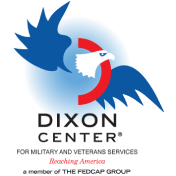There are not many factors more important to veteran’s long-term success than being able to call some place their home. A home provides a connection to the community, a sense of stability, and the promise of a strong future for veterans and their families. But for the roughly 200,000 veterans who transition from the military to the civilian world each year, navigating the ins and outs of the housing market and finding affordable housing can be overwhelming. The number of details a consumer is faced with can be confounding even for civilians experienced in the intricacies of buying or renting a home.
These complexities are just one reason why nearly 40,000 veterans are homeless . The majority are male, single, living in urban areas, and suffering from mental illness, alcohol and/or substance abuse, according to the National Coalition for Homeless Veterans. Meanwhile, an additional 1.5 million veterans are considered at risk of homelessness due to poverty, lack of support networks, and dismal living conditions in overcrowded or substandard housing.
Whether it’s providing veterans access to affordable housing, providing introductions to the mortgage market, offering education on fair housing, foreclosure prevention, and pre-purchase preparation, or connecting homeless veterans with transitional and permanent housing, Dixon Center occupies a unique position as a central clearinghouse for the patchwork quilt of government and local and national veterans’ assistance programs. As a central clearinghouse, we work with a network of partners with national reach who also provide supportive services to counter the mental health and substance abuse challenges that often accompany homelessness.
